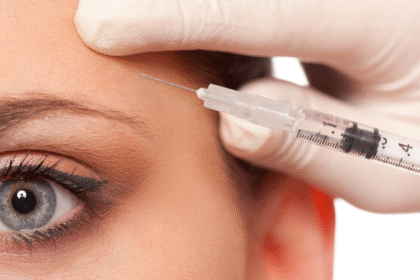When it comes to women’s health, few medical professionals play as vital a role as an obstetrician-gynaecologist, commonly referred to as an OBGYN. Whether you’re searching for an obgyn near me or simply trying to understand what their services include, it’s important to know that OBGYNs provide comprehensive care that spans from adolescence to menopause and beyond. Their expertise combines two essential areas of medicine — obstetrics, which focuses on pregnancy and childbirth, and gynaecology, which addresses the overall health of the female reproductive system.
In Australia, OBGYNs are an integral part of women’s healthcare, offering support through every stage of life — from the first period to post-menopausal health. Let’s take a closer look at what their services encompass and why they are so significant.
Understanding the Role of an OBGYN
The Dual Focus: Obstetrics and Gynaecology
An OBGYN’s practice is built on two interconnected pillars. Obstetrics deals with pregnancy, childbirth, and postnatal care, while gynaecology focuses on the diagnosis and management of conditions related to the uterus, ovaries, fallopian tubes, and other reproductive organs.
This combination allows OBGYNs to offer holistic and continuous care. For instance, a woman may see her OBGYN for fertility advice, prenatal check-ups, delivery, and later for menopause management — all under the guidance of the same trusted professional.
Education and Expertise
OBGYNs undergo extensive medical training, including years of postgraduate study and clinical practice. This ensures that they can handle complex medical situations, from high-risk pregnancies to surgical procedures. Many OBGYNs also sub-specialise in areas such as fertility, reproductive endocrinology, or maternal-foetal medicine, allowing them to tailor their care to individual needs.
Key Services Offered by OBGYNs
1. Reproductive Health and Preventive Care
Routine check-ups are one of the cornerstones of an OBGYN’s services. These visits often include pelvic exams, pap smears, breast exams, and screenings for sexually transmitted infections (STIs). Such preventive care helps detect potential issues early, ensuring timely treatment and reducing long-term complications.
OBGYNs also provide contraception advice, helping women choose from options such as birth control pills, intrauterine devices (IUDs), and implants based on their lifestyle and health needs.
2. Pregnancy and Childbirth Care
One of the most recognised roles of an OBGYN is supporting women throughout their pregnancy journey. From the moment a pregnancy is confirmed, OBGYNs monitor both maternal and foetal health, performing regular ultrasounds, blood tests, and check-ups.
During childbirth, they assist with labour management, perform deliveries, and handle any complications that may arise. Their expertise ensures the safety of both mother and baby, whether through natural birth or caesarean delivery. Postnatal care — including emotional support, recovery monitoring, and breastfeeding guidance — also falls within their scope.
3. Menstrual and Hormonal Health
Menstrual irregularities are common, and OBGYNs are often the first professionals women consult for issues such as heavy bleeding, severe cramps, or absent periods. They also diagnose and manage hormonal conditions like polycystic ovary syndrome (PCOS), endometriosis, and premenstrual syndrome (PMS).
Hormonal balance plays a crucial role in overall wellbeing, and through lifestyle counselling, medication, or surgical intervention, OBGYNs help women maintain that balance.
4. Fertility and Family Planning
Infertility can be emotionally challenging, and OBGYNs are trained to guide couples through testing, diagnosis, and treatment options. They may recommend ovulation tracking, hormone therapy, or refer patients to fertility specialists for advanced treatments like in vitro fertilisation (IVF).
OBGYNs also play a key role in family planning, offering counselling and guidance for those trying to conceive or those wishing to delay pregnancy.
5. Menopause and Post-Menopausal Care
As women approach menopause, hormonal changes can bring a variety of physical and emotional symptoms, such as hot flushes, mood swings, and sleep disturbances. OBGYNs help manage this transition through hormone replacement therapy (HRT), lifestyle advice, and regular screenings for conditions like osteoporosis.
By addressing both physical and emotional health, they ensure women continue to live comfortably and confidently during this life stage.
6. Surgical Procedures and Treatments
When necessary, OBGYNs perform surgical procedures such as hysterectomies, laparoscopies, removal of ovarian cysts, or treatment for fibroids and endometriosis. Many of these surgeries are minimally invasive, allowing for quicker recovery and fewer complications.
The Importance of Regular Visits
Many women visit their OBGYN only when something feels wrong, but regular check-ups are essential for maintaining long-term health. Early detection of issues such as cervical cancer, infections, or hormonal imbalances can make a significant difference in outcomes.
Additionally, OBGYNs often provide valuable guidance on nutrition, exercise, and sexual health — ensuring a well-rounded approach to wellness.
Final Thought
OBGYNs are far more than pregnancy specialists — they are lifelong partners in women’s health. From adolescence to menopause, their role encompasses prevention, education, treatment, and emotional support.
Whether it’s a routine screening, fertility consultation, or pregnancy care, an OBGYN provides reassurance and expertise every step of the way. Understanding their wide-ranging services helps women make informed decisions about their health and embrace every stage of life with confidence and care.


